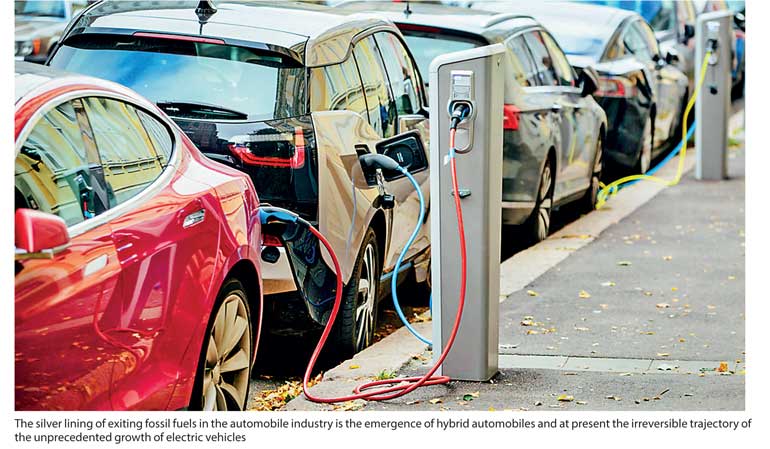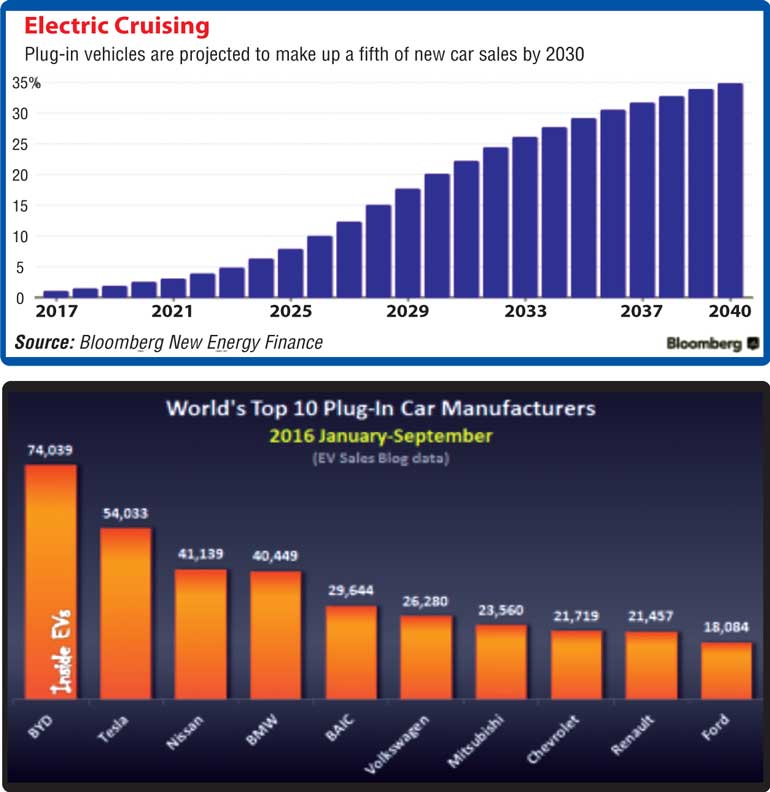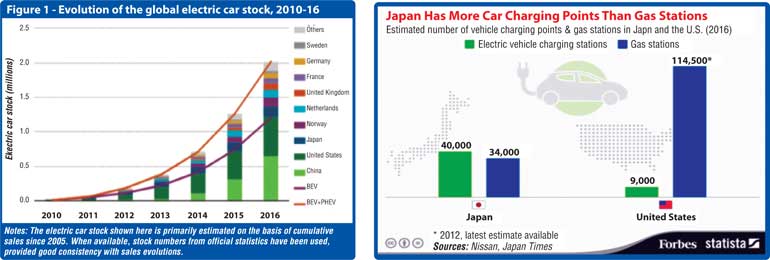Friday Feb 27, 2026
Friday Feb 27, 2026
Friday, 22 September 2017 00:00 - - {{hitsCtrl.values.hits}}


 The planet is heating up and fossil fuels are to blame!
The planet is heating up and fossil fuels are to blame!The past three years have been the hottest in recorded history and 2017 is already projected to be hotter than 2016! The cause for this heating up of the planet is clearly due to the excessive burning of fossil fuels.
Exiting fossil fuels as per UN Sustainable Development Goal 7 which is to change to renewable energy is clearly the “most significant” goal and the one goal that every nation, business and individual must focus on and be held accountable for achieving.
If, there was only one UNSDG to be achieved this is the one goal that will secure the planet and halt global warming and keep it below 2°C. One could even say the balance 16 goals are a distraction from the most urgent need of the hour.
If the above is true, then the silver lining of exiting fossil fuels in the automobile industry is the emergence of hybrid automobiles and at present the irreversible trajectory of the unprecedented growth of electric vehicles – Toyota Prius Hybrid sets the pace after GM drops the ball!
In 1997, the pace was set with the launch of the Toyota Prius Hybrid led by its mercurial engineer and leader of the project Akihiro Wada. Toyota with its Hybrid did not ‘exit fossil fuels’ but dramatically gave consumers an option to reduce fossil fuels and enlightened consumers to embrace the change. Major competitors seeing the writing, followed suite and launched their own hybrid brands.
However, the tipping point should have come during 1996-1999 when General Motors mothballed an excellent innovative idea of having the first Electric vehicle prototype GM EV1. Sadly, a few ‘backward members of the board of directors who had vested interest in the fossil fuel industry rejected the idea’ and the project was mothballed.
The key lesson is to ensure every board has enlightened leaders who have no vested interest but understand future trends and adapt to them.
In July 2003, almost five years after General Motors dropped the ball in 1999 and seven years after Toyota Prius launched its Hybrid in 1997, it took one maverick visionary physicist, Elon Musk to see the value of electric vehicles and the role electric vehicles could play in exiting fossil fuels in the automobile industry.
Not only did he create a new sustainable market space for electric vehicles, his company Space X is already the world’s leading company to use sustainable reusable rockets to deploy satellites in space; Solar City is the leading home solar company with its ground-breaking ‘Powerwall’ solar storage option; and the new TESLA Gigafactories will be the largest factory complexes on the planet with 100% solar energy-driven manufacturing.
In July 2017, the launch of the TESLA model 3 at $ 35,000 also signalled the scaling up of its manufacturing capability to 500,000 cars per annum.
The company JV joined hands with National Panasonic to manufacture EV batteries in the same facility. How many automobile manufacturers have the benefit of space technology to augment its commitment to a fossil free world? Tesla is set up to win big and is already referred to as the next Apple Inc.
The launch of Tesla Electric vehicles led to a boom of electric vehicles like never before and by 2015 was the bestselling EV on the planet! Every vehicle brand manufacturer realised the irreversible trajectory of electric vehicles and launched their own EV brand. BMW, Mercedes, Ferrari, Porsche, Audi, Ford, Nissan, Renault, Honda, Volvo and BYD of China are all driving forward to ‘win’ shares in the new sustainable blue ocean market space created by Tesla.
The nation which probably is the world leader in terms of fossil fuel driven vehicle manufacturing has already installed more electric charging points than traditional petrol stations. It’s not surprising that USA is far behind when its leader Trump denied the existence of climate change and is set to support coal power.
This backward thinking is now an embarrassment for USA as at the recent G20 meeting 19 nations made commitments to endorse the 2014 Paris agreement to keep global warming under 2°C. Germany, France, Sweden, Denmark, the United Kingdom and Netherlands have already announced that fossil fuel led vehicles will be banned by 2040. China, South Korea and even India have announced their commitment to drive forward with the new electric vehicle agenda.
The unprecedented growth of electric vehicles in Europe and China clearly indicates that this new sustainable blue ocean market space is here to stay as demonstrated by the figures below. Global forecasts state, that by 2033 we will have a tipping point for EVs and by 2040 over 35% of the automobile market will have electric vehicles. My forecast is that this will be superseded and that by 2030 we will see over 50% off the vehicle market being met by EVs. We need this to happen to ensure that the planet’s temperature doesn’t make it uninhabitable.
The leading electric vehicle brands in 2016 were BYD (China) and Nissan Leaf (Japan), Renault (France) came in second while TESLA (USA) emerged third. The tipping point for electric vehicles will come with the launch of TESLA model 3 in August 2017.
A global irreversible trend is in motion, electric vehicles will overwhelm the planet. Every nation will do well to align to this new trend and get in place its national policies to align to the new sustainable automobiles business that is both healthy for the planet and will reduce fossil fuels dramatically.
Many have doubts about changing to an electric vehicle. Nations with antiquated and backward policies which do  not support and encourage this global trend end up with duty structures which are prohibitive. Sri Lanka would fall into this category and we hope the new leadership in the Finance Ministry will take a more educated stance.
not support and encourage this global trend end up with duty structures which are prohibitive. Sri Lanka would fall into this category and we hope the new leadership in the Finance Ministry will take a more educated stance.
Some of the questions people have are:
1) EVs are too expensive – Just add up you monthly fuel bill and maintenance cost
2) Range anxiety – EV models from 2017 will cross 200km-400km with a charge
3) EVs aren’t fun to drive – Tesla Ludicrous mode will make you a convert
4) EV batteries are dirty – Untrue; this is Koch brothers-led coal lobby story
5) EVs catch fire – Petrol and diesel vehicles are much more at risk
6) EVs take forever to charge – The rapid chargers are changing this.
7) EVs charging network is poor – This is changing. E.g.: Japan.
The world needs to exit fossil fuels and you can make a contribution by going EV.
(The writer is the Executive in Residence, INSEAD Business School and Chairman/CEO of Global Strategic Corporate Sustainability Ltd.)